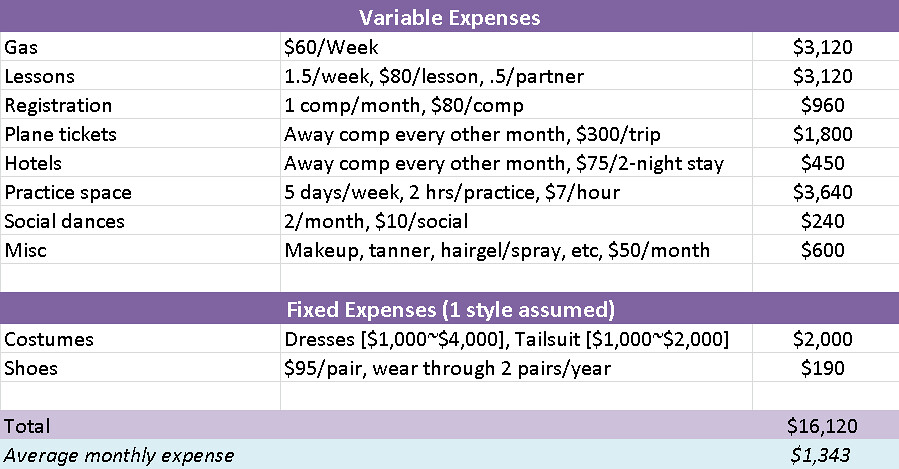As the cliché goes, "It takes two to tango." How true this is. While practicing alone maybe fun at times, ballroom is infinitely more satisfying with a partner moving across the floor. But not all partners are created equal. Some partners can be lazy and unfocused. Others can be hypersensitive and abusive. Good partnerships are built on more than just skill (although this can be important as well). Thus far, I feel as thought there are three roles a partner plays to a dancer - most partnerships have at least one or two of these (or they would never take off), and lucky is the lead or follow that can boast a partner capable of all three.
Teammate
Granted, "teammate" can somewhat serve as a catch-all, particularly after all of the inspiring sports movies we've grown up with. But I am speaking merely from a co-competitor standpoint - the who-would-I-pick-first-on-the-playground sense. In Little League Baseball, you have some teams with mixed skill sets - some are destined to become Nolan Ryans or Kobe Bryants, and some will never play a second season. But later down the road, teams form around people of comparable skill and experience. People work with other people that they believe have the talent to make them successful. This is true of competitive dancers as well.
It's a visual sport, and there's no getting around that. Who will you look good with? Who is capable of keeping up with you? Who knows the moves you are best at? Being a good physical and skill match can make a partnership really launch with some promising momentum.
Of course, it doesn't always work out that way. Sometimes, one of the partners will be vastly superior to the other. I myself have been the inferior partner more than is fair - it's a great position to be in, assuming you're willing to work hard and learn quickly. But bear in mind, you'd better close the gap soon. World-class musicians probably don't like playing in High School Bands for extended periods of time. If you are in the less-experienced position, you'd probably do well to fulfill the other roles strongly.
Associate
Competitive dancing takes a lot of time, money, and energy. Or not. It depends on your goals and your resources. And the last thing you want it to depend on the drive of someone other than yourself. Aligning goals and setting expectations is critical to a strong partnership. Being responsive to planning practices and following-through on registrations and hotel reservations is important. You don't need a crazy-dedicated partner - unless, of course, you yourself are crazy-dedicated.
The "associate" is the business partner. You set goals and benchmarks, you pool resources, you take responsibilities. It's like having a second job. Whether it's full- or part-time is up to you. But bear in mind that there is another schedule (and paycheck) to accommodate. The last thing you want is to find yourself in a situation where you are ready, willing, and able to take some private lessons that your partner can't afford, so it doesn't happen.
Also, you need to be aware that some partners want to WIN and are willing to draw blood to make it happen, where as others would be content to have fun and maybe showcase every once in a while. Figure out where you fall on the spectrum, and make sure your partner falls somewhere nearby.
Friend
D'awwwwww, the warm fuzzies. Partners and friendship. But make no mistake, you can partner someone who you cannot stand. You can partner with a complete jerk and still be successful. You can show up to practice, work hard, say good night, then drive home. It can work. But who wants to spend 10 hours a week hip-to-hip with somebody unpleasant?
I have seen plenty of partnerships where people do not treat each other well. But the love of dance can be more powerful than simple taste in company, and thus such partnerships arise.
Ieva Pauksena once said in a workshop, "How hard is it to tell your partner that they look good today?" As simple as the response to that question is, it is very easy to get hyper focused on the goals you've got in mind and forget that there is another person in the room. As much as your partner is a resource to enable you to dance, do not forget that you are privileged to spend time with another like-minded being with a common passion, and these sort of people are difficult to come by in any hobby/activity/profession. Compliments are inexpensive - try handing out a few here and there when they are deserved.
Believe it or not, remembering to grab an extra coffee on the way to practice just may be the difference between a good round and a great round.


